Disclosure: Meeple Mountain received a free copy of this product in exchange for an honest, unbiased review. This review is not intended to be an endorsement.
There are certain games I have learnt, over the years, that I simply ought not to play. Not because they are bad—this is not about taste—but because they grate against something deep within me. And when I say I “ought not to play” them, I don’t simply mean that I don’t enjoy them. It’s worse than that. I become unpleasant. I am miserable. The people around me are miserable. It is for the health of the gaming ecosystem as a whole that I pass on these games, the most prominent examples of which are Catan and Ticket to Ride.
It took me a few years to figure out what the issue was. It’s a matter of luck. Games can be placed on a spectrum between the entirely luck-based (Candy Land) and the perfectly strategic (Gaia Project). I enjoy games at every point along that chart. I relish a round of L.A.M.A.—which reminds me, I haven’t played L.A.M.A. in far too long—as much as I do a game of Pax Pamir. I’m a joy to have at the table in all cases.
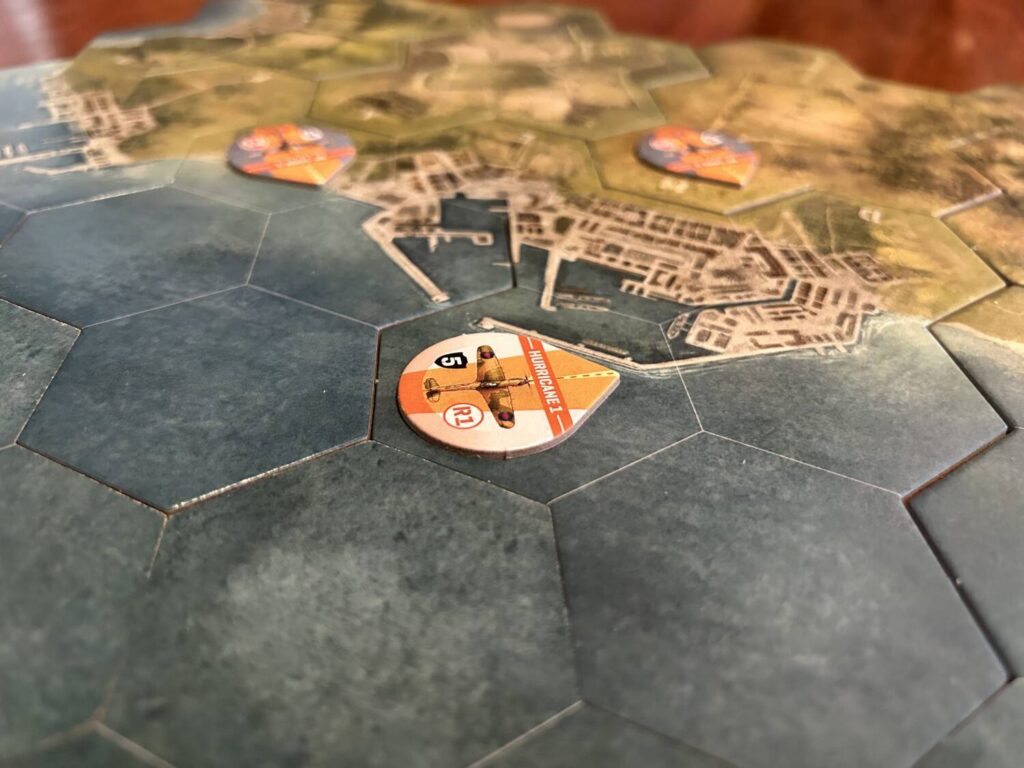
It’s when perception doesn’t meet reality that I run into trouble. Games that feel like they exist closer to the strategic end, but actually involve a great deal of luck. You can position yourself as well as you want in Catan, making trades like a Wall Street executive, but if the dice don’t give you the results you need, none of it is going to matter. In Ticket to Ride, if you can’t get your hands on the right train cards, your routes aren’t coming together. The feeling that I should be doing better than I am, without understanding why, drives me absolutely batty.
The Undaunted series has always been an edge case. I get surly. I get frustrated. Every session of the magnificent Undaunted: Stalingrad involved me saying, at some point, “God, what could I be doing differently here? Why am I losing so badly?,” even and especially during the games I ended up winning. The marriage of deck building and dice-driven combat is an ideal breeding ground for the luck/strategy dysphoria I’m talking about. Undaunted ultimately gets by because strategy still rules the roost. I can (mostly) manage my Big Feelings. I love the game enough to come back to it time and again, apologizing to my opponent all the while.
Planes, Tranes, and Automoplanes
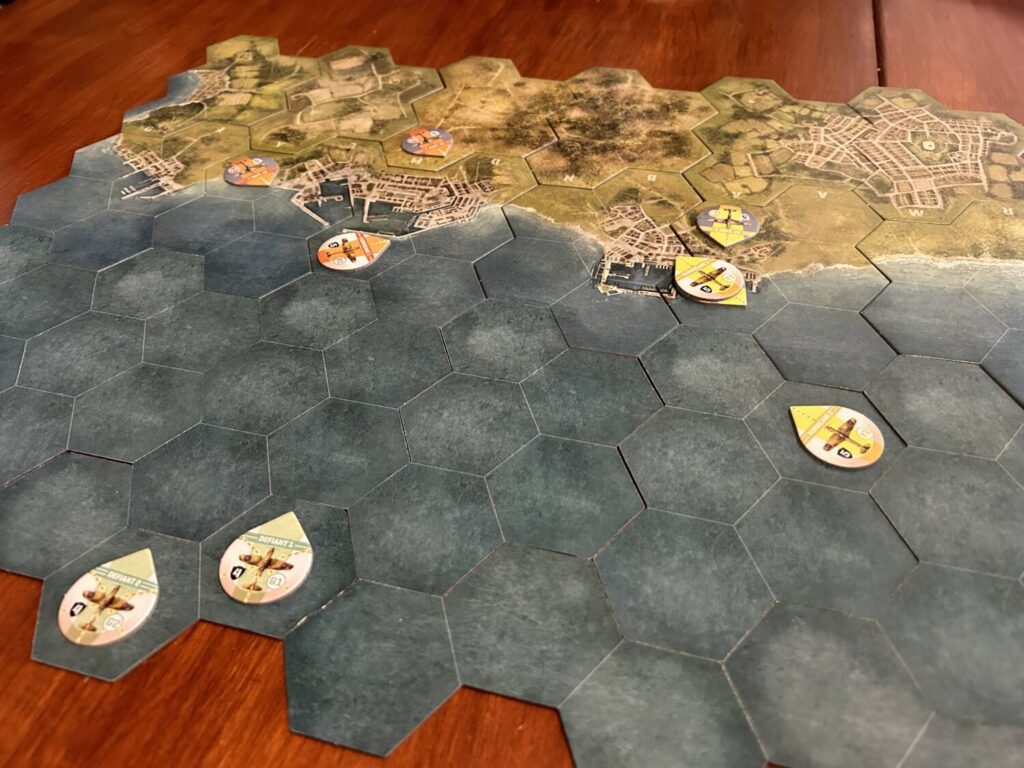
Undaunted: The Battle of Britain moves the previously earthbound franchise into the air above and the seas surrounding Great Britain. We are no longer concerned with the movement of ground troops, folks. This is a dogfight.
The core remains unaffected. Each player’s deck is full of cards corresponding to the units they have on the board. You add cards as you go, changing your focus from one region to another. A key difference with this installment: to simulate the constant and propulsive movement of planes through the air, planes move every time they are activated. Whether I want my Hurricane to maneuver or take a shot, it is going to move. It can move before, or it can move after, but this is not a negotiation.
Visualizing movement, and therefore setting up future turns, is more difficult than I expected. I’m good at spatial reasoning, but there were several turns in my first game where either myself or my opponent stopped mid-movement, realizing we weren’t going to be able to do something we’d been sure we could. There are moments in which the constant churn of combat comes alive. If both players have a series of turns in which their cards come together, a wondrous ballet emerges. Such occurrences are fleeting, though.
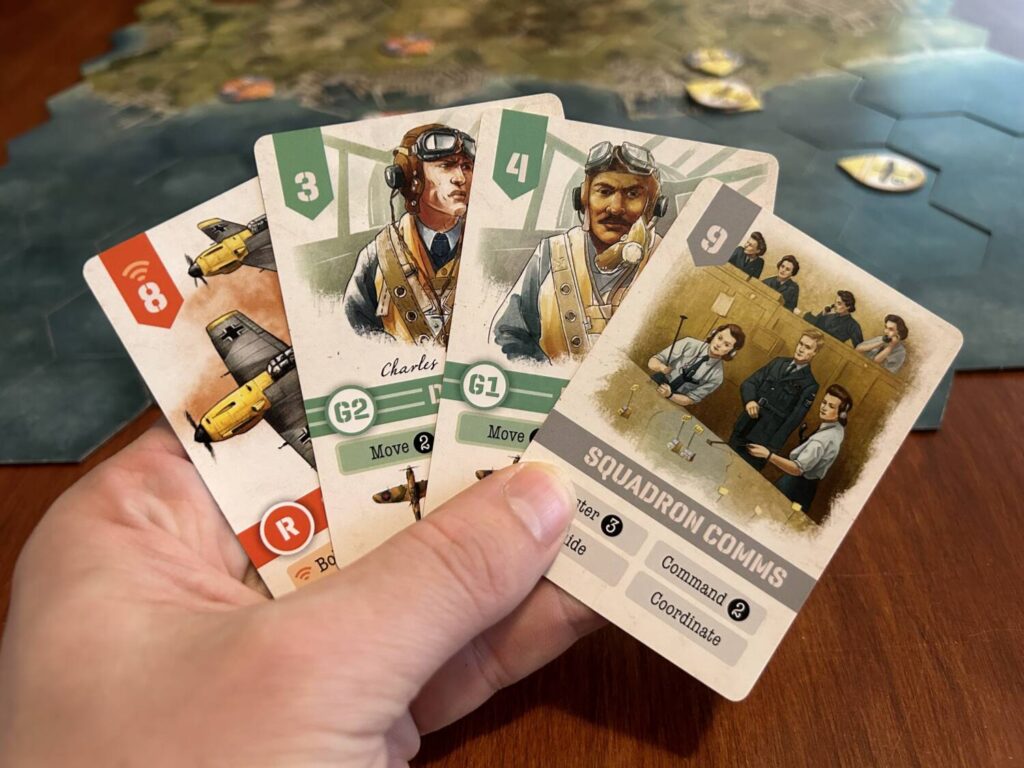
You can either turn or shoot. You can’t do both. Lining yourself up to take a shot is laborious, time-intensive work. Unless your card draw is lucky, there’s a good chance your opponent will no longer be where they were, or will have gone where you wanted only to keep moving, or, or. That’s issue number one.
Issue number two is the real heartbreaker for me. One of Undaunted’s strengths as a system is the flexibility of the deck building. You can always choose to hunker down, removing a unit from your deck and placing it back in your supply. Undaunted: The Battle for Britain doesn’t allow for that. You cannot ground planes. It makes thematic sense, but it creates friction with what makes the mechanisms fun and rewarding. I can’t make my deck as focused as I’d like. I can’t respond to my opponent’s actions in one region by lithely moving somewhere else.
Drag
Combat in Undaunted has always had a significant element of luck to it. It’s dice, and largely unmitigated dice at that. The rolls just about always have a less-than-50% chance of hitting. This is by design. Undaunted is not designed to be a firefight. Neither Normandy, North Africa, nor Stalingrad is about the combat. In fact, you can often do better by avoiding it and choosing your spots. My friend Josh and I even have a joke about this: When we play Undaunted, he rolls better and I win.
For me, the greatest stumble in The Battle of Britain is the shift to everything being about the combat. Your goals are centered on the results of dice rolls. You aren’t trying to claim territory, you’re trying to destroy enemy bases, ships, and planes. You need the rolls in order to win. Skill is a determining factor, but luck is much more of an issue.
I can’t do it. By the end of my first game of The Battle for Britain, both Josh and I were vibrating with frustration. If I always find Undaunted a high-wire act of emotional regulation, I don’t have the sense of balance necessary for Undaunted: The Battle of Britain.
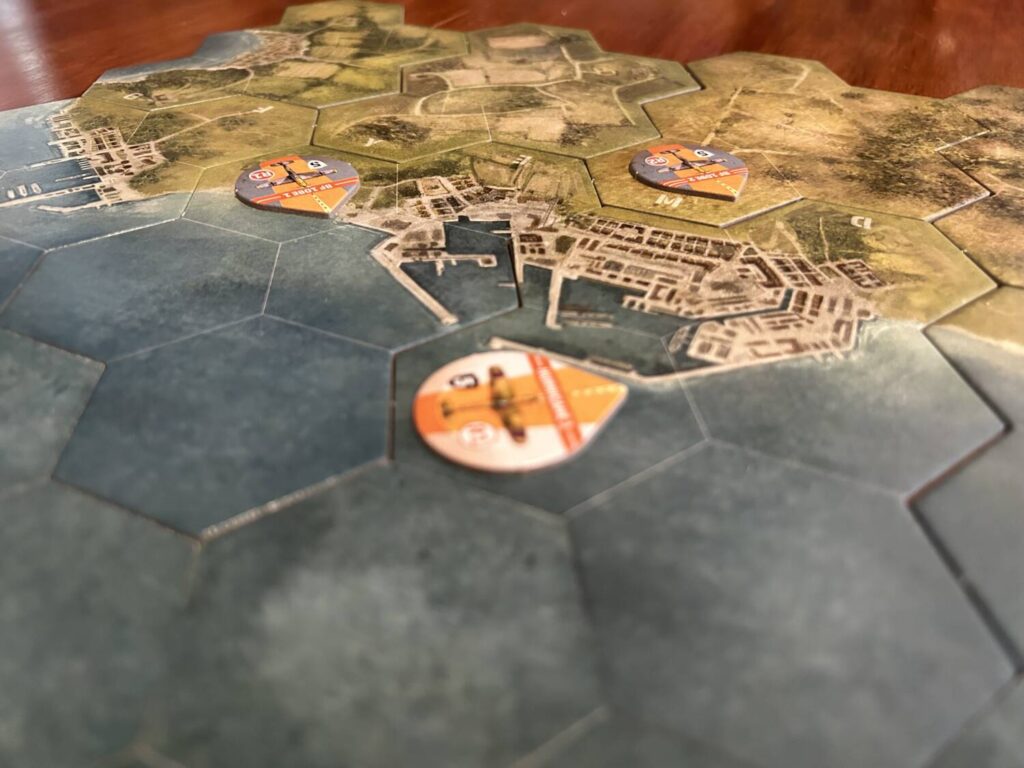


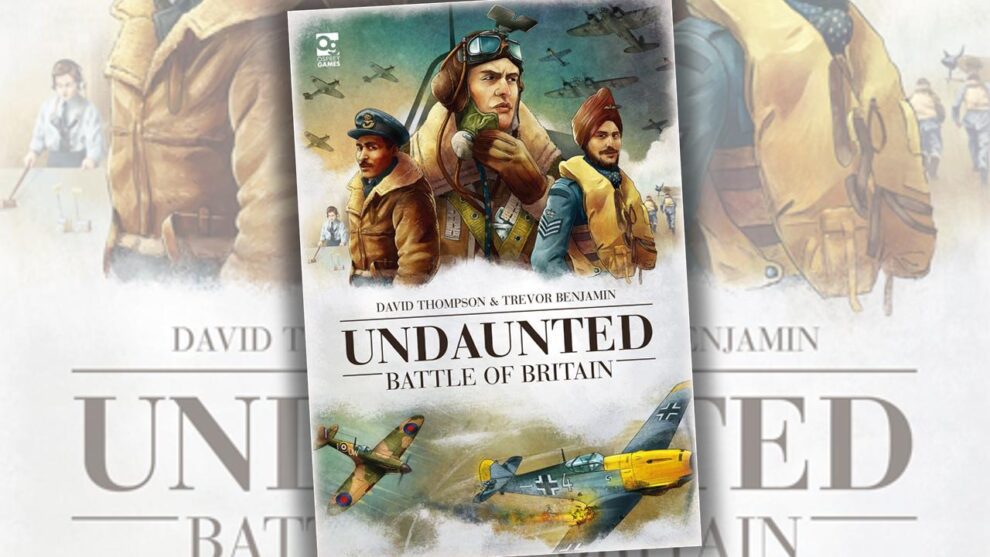








Add Comment